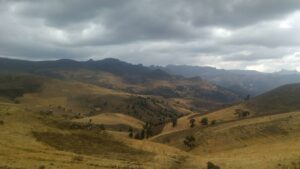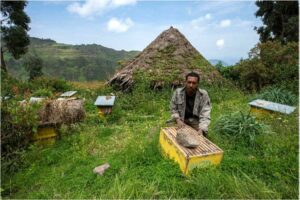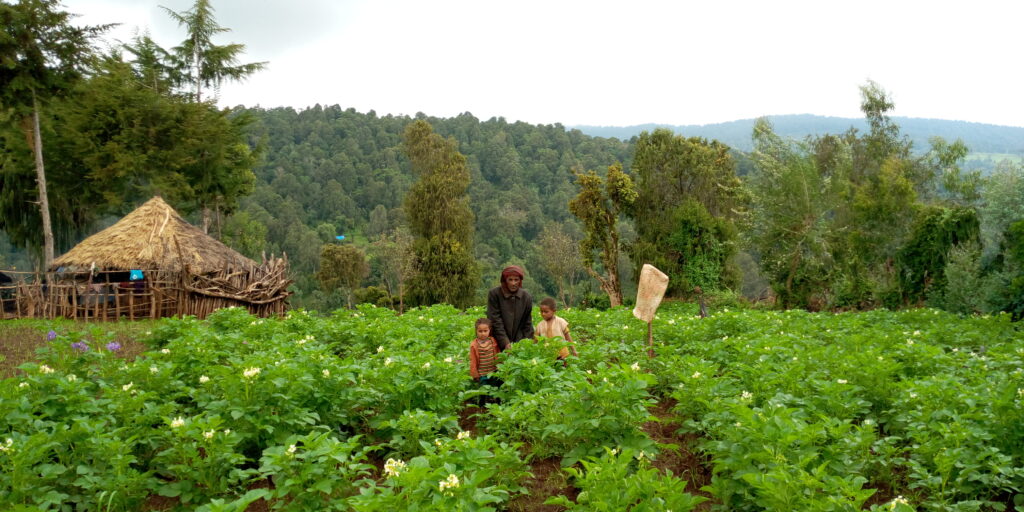Ethiopia has a total area of 1,104,300 km² and consists mostly of highlands stretching from the border of Eritrea almost to Kenya. Two thirds of Ethiopia is above 3,000 m altitude and forms the “roof of Africa”. One of Ethiopia’s major environmental problems is deforestation and overexploitation of forests, which has resulted in more than 90% of the alpine vegetation disappearing. The country’s greatest challenges include an underdeveloped infrastructure and small-scale agriculture, which is geared towards self-sufficiency and is heavily dependent on the rainy season. Climate change, lack of rainfall, ongoing deforestation and soil erosion result in periods of drought and food shortages. More than 112 million people (as of 2019) live in Ethiopia.
The project area is in the Adaba District in the Bale Mountains, the second highest mountain region in Ethiopia, 240 km south of the capital Addis Ababa. The rural population of the district of Adaba mainly engages in subsistence farming. Their lives are characterized by a lack of basic social amenities, employment opportunities, access to public health and education services, and a balanced diet. In addition to population pressure, low agricultural productivity and a lack of alternative livelihoods also contribute significantly to the poverty of the local population. So far, one way out has been the expansion of agricultural land and pastures. In the meantime, however, this has shifted to the adjacent area of the Bale Mountains National Park, whose ecosystem is increasingly endangered as a result.

In 5 communities of the district of Adaba, the living conditions of smallholder families in terms of income, health and nutrition are to be improved and at the same time contribute to sustainable management of the natural resources in their surroundings and the protected area.
In detail, the following measures are planned:
- Intensification and expansion of the already successfully tested and practiced cultivation of highland fruit trees and vegetable cultivation.
- Expansion of modern beekeeping, whereby more young people and women are to be won over to beekeeping.
- Regular training of farmers in the basics of sustainable agriculture and environmentally friendly agricultural practices.
- Building the capacity of the cooperatives, eg to create and implement viable business plans and effective management.
- Regular training courses on general and reproductive health for so-called “peer educators” who systematically pass on their knowledge in their communities.
- Information campaigns to improve existing government health services
- Supporting local health organizations to increase their outreach in providing reproductive health services.
- Improving production and facilitating access to energy-saving stoves for needy households.

Project sponsor: Karl Kübel Stiftung for Children and Families
Project partner: MELCA-Ethiopia (Movement for Ecological Learning and Community Action)
Funding year: since 2021
Project no.: 147-21fe

